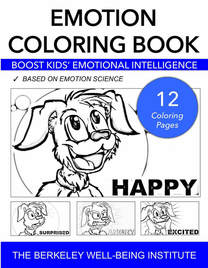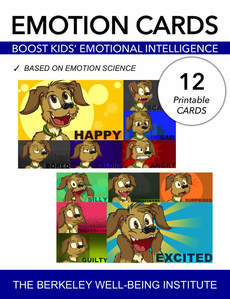10 Emotion Games For Kids (Toddlers too!)Here are some games that help kids manage their emotions and feelings, developing emotional intelligence and well-being. Check them all out.
*This page may include affiliate links; that means I earn from qualifying purchases of products.
Science shows that we can learn the skills that lead to emotional intelligence, happiness, and well-being. But, science also shows we learn everything better when we are young.
This is why awesome parents know it's super important for kids to build their brains in ways that help them develop their emotion skills—skills that help them cope with stress, develop more satisfying relationships, and be more successful in their careers. Games are a fun and easy way to help kids develop these emotion skills while also learning how to manage their emotions and feelings, developing emotional intelligence, and increasing well-being. So here are 10 emotion games to try out: 1. Emotional Intelligence Flashcard Book
2. Emotion Coloring Book (Immediate Download)
3. Emotion Cards (Immediate Download)
4. The Stop, Relax, and Think Collection
5. Totika Self-Esteem Game
6. Feelings Playing Cards
7. Feelings in a Jar
8. Game of Consequences
9. Thoughts and Feelings: A Sentence Completion Card Game
10. Social Skills Board Games
Bonus Emotion Games:11. Stone Soup Cooperative Game for Kids
12. Dr. PlayWell's Don't Stress Game
13. You and Me: Social Skills Card Game
|
Are You a Therapist, Coach, or Wellness Entrepreneur?
Grab Our Free eBook to Learn How to Grow Your Wellness Business Fast! |
Terms, Privacy & Affiliate Disclosure | Contact | FAQs
* The Berkeley Well-Being Institute. LLC is not affiliated with UC Berkeley.
Copyright © 2024, The Berkeley Well-Being Institute, LLC
* The Berkeley Well-Being Institute. LLC is not affiliated with UC Berkeley.
Copyright © 2024, The Berkeley Well-Being Institute, LLC













